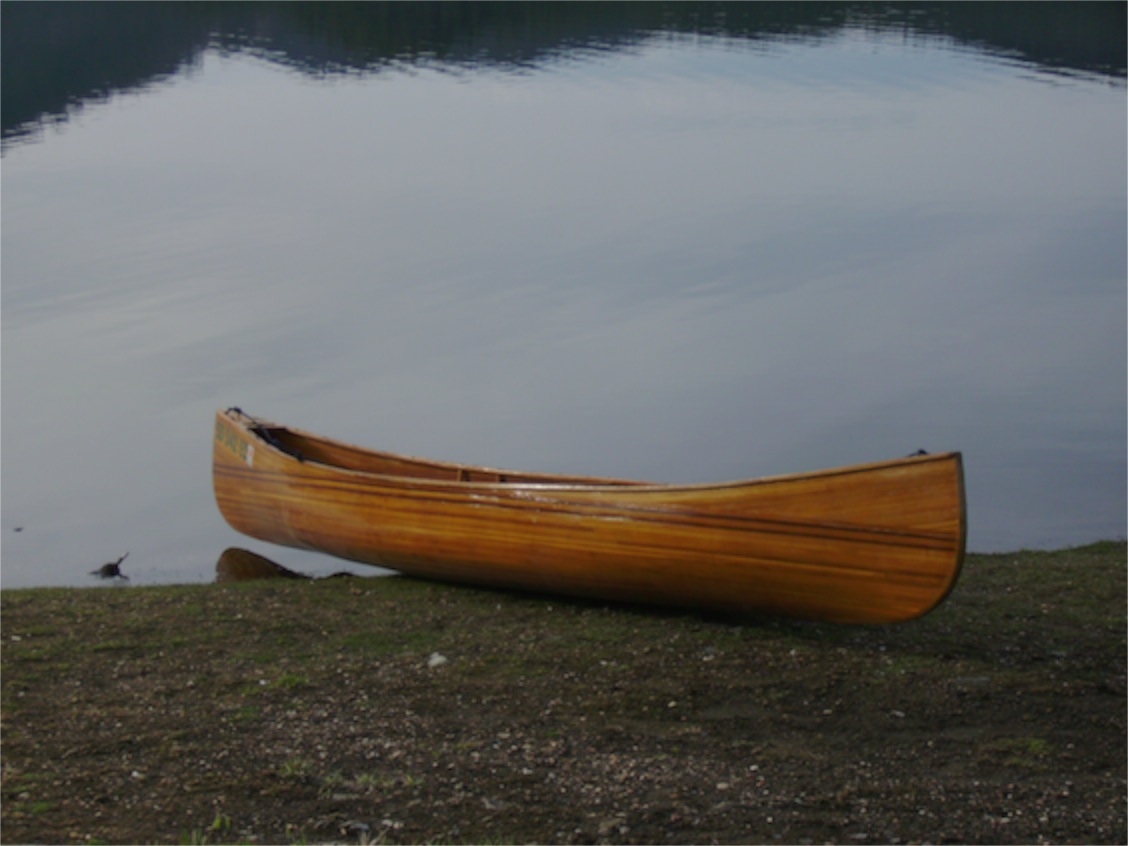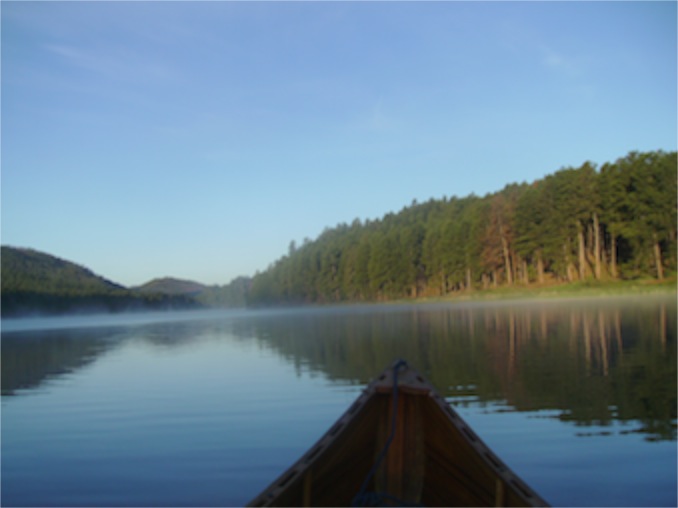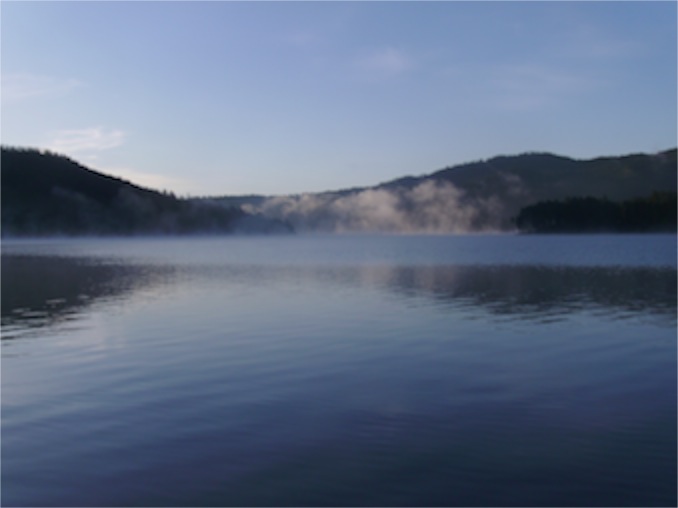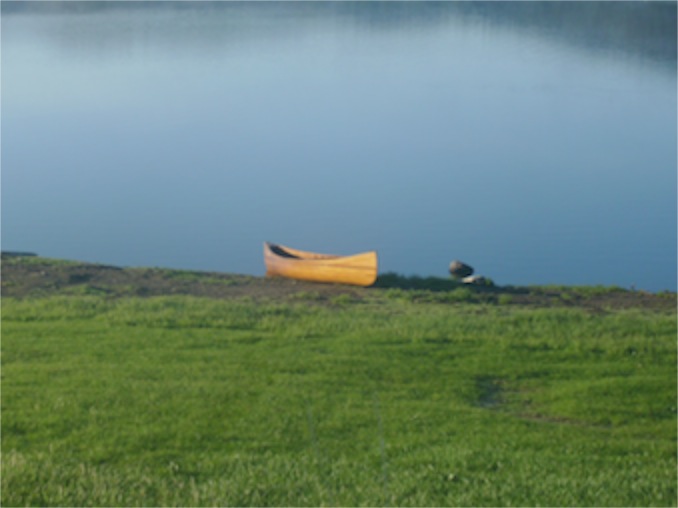Stillness
07/06/13 04:42

Among the rare treats of this world is the incredible joy and beauty of watching the sunrise from a canoe on a still lake in the midst of the trees. I am sure that there are those who find a similar beauty in watching a sunset, but being a morning person, I find myself on the lake in the wee hours more often than in the evening. Yesterday, I quickly published my blog and headed to the lake. The mist was rising form the lake, something that doesn’t happen at sunset. The quiet was broken only by the occasional chatter of geese on the other side of the lake. Geese are never ones to appreciate the quiet and have much chatter to share, but they don’t disrupt the experience for those of us who have come to the lake for the stillness of the morning.
Psalm 46 simply says, “Be still, and know that I am God.” Sitting in my canoe on the lake as the mist rose from its surface, with the warmth of the sun just beginning to trickle down to the surface of the water and the quiet of the morning surrounding me, it seemed to me that it is enough. I don’t have to prove that God exists. I don’t have to argue with the atheists. I don’t have to proclaim anything to anyone. It is enough to just be still and know that I don’t have to be God. I don’t have to be in charge. I don’t have to have the fate of the world hinge on my actions or ideas.
On calm water a few simple paddle strokes can propel my canoe at a perfect pace. I like to paddle “Canadian” on a calm lake. I place a pad in the middle of my canoe and heel it over to make it easier to reach the water and to shorten the water line of the boat. I don’t have to cross paddle unless there is a lot of wind and then, once I get the boat in motion, no cross paddling is needed.

I used to belong to the American Canoe Association. The ACA is the organization that sets the professional standards for canoe instructors. Their courses are the “gold standard” for canoe safety and instruction technique. If one wants to be considered to be a qualified canoe instructor, ACA certification is the best way to gain recognition and to make sure that the teaching and paddling techniques are the best.
But there is no need for professionalism when I am alone in my canoe. Although I don’t find it to be artful to cross paddle, no one would care if I did. There is no one to evaluate my technique. I occasionally see other canoeists on Sheridan Lake, but few show any signs of much experience. The craft of the canoe is a lifetime passion, not a lesson learned in a class. I know that in part because I have taken the class. I know that safety is my own responsibility. I always wear my PFD and carry my whistle, but early in the morning, it is unlikely that anyone would hear the whistle. I need to have my own self-rescue plan when I paddle alone in the wee hours. My rescue plan usually involves paddling close to shore so I could simply wade out of the lake if necessary. The truth is that there is little danger or risk to the style of paddling that I enjoy most. I place myself in far more danger driving to and from the lake than I do on the lake.

Yesterday I remembered to take my camera. I tried to capture the moment, but the pictures, while pretty, are not at all what the lake felt like. I’m sure that a better photographer might have made images that were better, but no photograph can capture the feeling of the chill in the air, the glide of the canoe over the water, the warmth of the sun or the closeness to God. “Be still and know.”
Just like my camera and photographic technique are inadequate to capture the beauty of the lake at dawn, so too are my words insufficient to express the glory of the moment.
Henry David Thoreau once wrote, “Everyone must believe in something. I believe I’ll go canoeing.” I believe that sometimes going canoeing can lead to knowing something that is worth believing in. Pierre Elliott Trudeau wrote, “What sets canoeing expedition apart is that it purifies you more rapidly and inescapably than any other travel. Travel a thousand miles by train and you are a brute; pedal five hundred miles on a bicycle and you remain basically a bourgeois; paddle a hundred in a canoe and you are already a child of nature.”

I believe I’ll go canoeing again today.